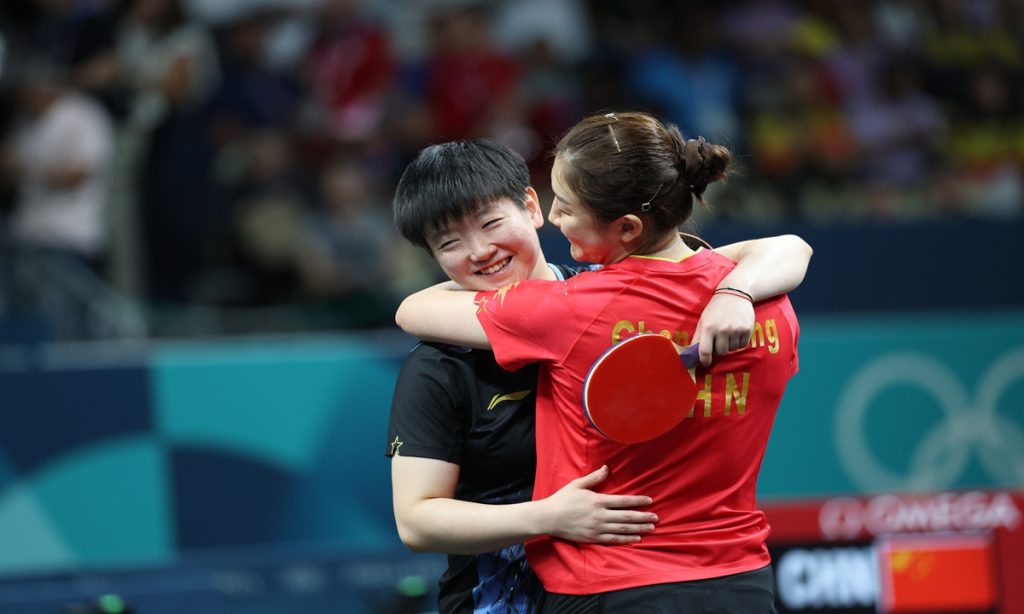It's imperative to defend sportsmanship against toxic fan culture

A 29-year-old woman surnamed He was detained by police for posting inflammatory as well as defamatory comments about athletes and coaches on Sina Weibo, following the table tennis women's singles final at the Paris Olympics, according to Beijing police on Monday.
The arrest came after Beijing police received reports from the public about the posts, which were found to be harmful due to their malicious and false nature. He has been placed under criminal detention while the investigation continues.
The arrest of the woman for defamatory comments about athletes at the Paris Games underscores the authorities' efforts to curb the negative impact of toxic fan culture and maintain the integrity of sports.
The arrest was preceded by an official crackdown on over 800 accounts of Chinese social media platforms that had been spreading negativity and fomenting conflict during the table tennis events at the Olympics, with more than 50,000 inappropriate fan posts being removed.
Chinese paddler Chen Meng defeated her teammate Sun Yingsha 4-2, winning the women's singles gold medal at the Paris Games, but the tantalizing all-Chinese final that deserved celebration turned into a shame when many fans on the stand showed favoritism toward Sun while booing Chen when Chen scored points and triumphed over Sun.
Both Chen and Sun are the victims of a distorted fan culture that centered on the idolization of a certain public figure, leading to selfish displays and toxic behavior that can harm the sports community and overshadow broader values such as patriotism and sportsmanship.
After China's easing past Egypt 3-0 to reach the quarterfinals of table tennis women's team event on Monday, Chen looked confident and shared her thoughts on the excellent teamwork of her fellow athletes.
"Our mutual trust is so deep that a simple glance can convey our feelings and intentions to each other," Chen said.
Deng Yaping, China's table tennis legend, advocates for maintaining the integrity and respect inherent in sportsmanship, emphasizing that while it's normal for fans to have their favorites, this shouldn't lead to hostility.
"Everyone has the right to like someone. You just need to show your affection; there is no need to attack other players," Deng said.
Deng said that the evolving nature of fan support in sports is a normal phenomenon.
"Traditionally, fans were drawn to table tennis because they loved the sport, and then they developed admiration for the players. However, nowadays, some fans are first attracted to specific athletes and then become interested in the sport itself."
Critics argue that such behavior should not be considered culture but rather a harmful "tumor" that needs to be rooted out.
Toxic fandom culture has even led to conflicts among fans, disrupting the harmonious atmosphere traditionally associated with sports. Instead of coming to appreciate the game, spectators often engage in aggressive cheering for their favored athletes while attacking competitor players, turning the sports arena into a battlefield, which represents a significant departure from the true spirit of sportsmanship.
The case highlighted the Chinese authorities' ongoing crackdown on inappropriate online behavior, and their efforts to preserve the spirit of sportsmanship and preventing the negative aspects of toxic fan culture from tarnishing the values that sports stand for.